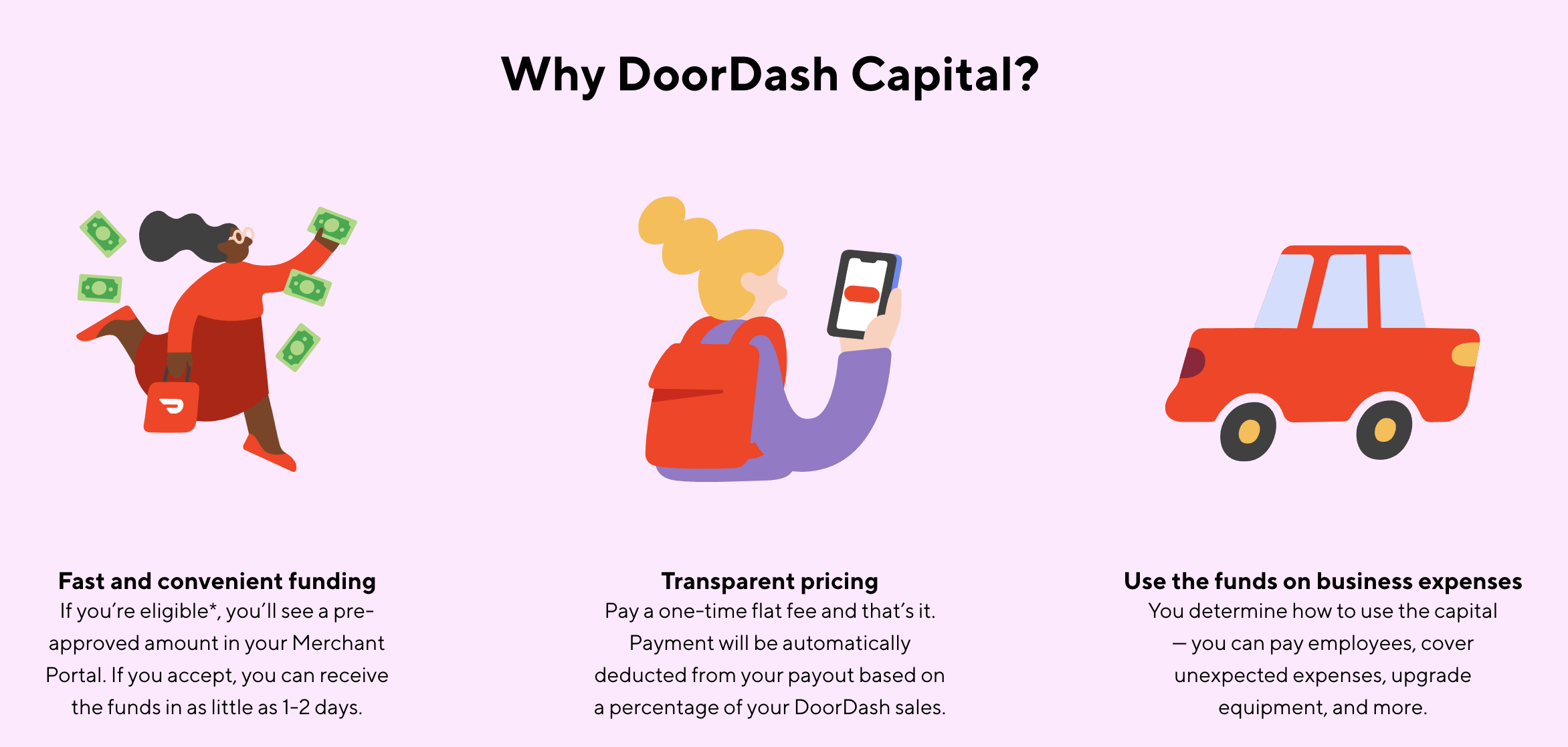Revenue Based Financing
How Daniela Cano and Nicole Paliobeis Originate More than $100 Million in Funded Deals a Year
December 19, 2025Daniela Cano and Nicole Paliobeis account for $10 million in revenue-based financing volume every month at Spartan Capital. That’s $120 million annualized. As the top two ISO relationship managers in the company out of eight total, Cano and Paliobeis operate in one of the most pivotal roles in the industry.
“It’s extremely fast paced, not one day is ever the same,” says Paliobeis, whose official title is Business Development Manager. “It’s always different between the person that you’re speaking to at your broker shop or your partner.”
Dozens of stories have detailed the high-octane lifestyle of what it’s like to be a broker, but the deals they originate don’t get funded unless they’re in sync with the right people at the right funding shops. Funders know this, so whom they choose to handle this part of the business is among the most important decisions they can make. After all, a funder can’t fund anything without deals coming in the door.

B2B Finance Expo 2024
“We’re the middleman between the deal going into the system, expediting the deal, getting that approval, the competing aspect of it, contracts, funding, going back and forth with the underwriter to get the deal done,” says Cano, who is the Director of Business Development.
“Our days do not end at 6pm eastern time, our days will end sometimes at 10 or 11 o’clock at night,” Cano adds. “We both have brokers that are on the West Coast, we have brokers that are traveling, just like we would be traveling. So I think part of it is we try to give them that customer service that they want.”
Cano also says that it’s not just late nights but also early mornings, when calls and texts can start rolling in at 7am, even before underwriters are in the office.
“Typically, I always have my laptop on me no matter the time of the day,” says Paliobeis. “And if somebody calls me or they need a contract or they need a bank verification and it’s like an SOS emergency. I’m like ‘Hang on, hold on, hot spot, sign on, send everything over to them. Your docs are in your Merchant’s inbox’ and then go from there.”
For Cano, her edge is that she’s worked in the industry for 14 years. Originally starting at a broker shop herself, she eventually switched sides and became an ISO relationship manager at a time when, she says, there were very few women in that role. That statistic, she adds, has changed significantly since. In the beginning, she was occasionally on the receiving end of comments that were less than kind, but that has become much less common over time.
“Eighty percent of my ISO partners are male, and then the rest are women,” says Cano. “And those women are going to be like the heads of strategic partnerships, funding managers, or they’re the ones that are moving a lot of the volume for the broker shop.”
Paliobeis puts her clientele in the 80–90% male range, at least as far as whom she interacts with at each company. Broker shop owners themselves still appear to be overwhelmingly male, though there is no precise research that nails down the percentage. Cano says she’s found the male-dominated aspect of the broker business surprising, but that it should not be viewed as intimidating to any woman considering entering the space.
“Don’t be scared of that male figure aspect of it,” she advises. “For any woman, just don’t be scared, just definitely go forward and do it.”
 Paliobeis, who comes from a background in luxury home sales and luxury retail sales and is now in her fourth year of small business finance, has found joy in realizing that her past experience can open doors in this space. For more than five years, she was a connoisseur of high-end watches—an accessory that some brokers are very into. Rolexes, for example, are something she commonly sees on wrists at industry conferences, along with the occasional Patek Philippe, Audemars Piguet, or even a Richard Mille.
Paliobeis, who comes from a background in luxury home sales and luxury retail sales and is now in her fourth year of small business finance, has found joy in realizing that her past experience can open doors in this space. For more than five years, she was a connoisseur of high-end watches—an accessory that some brokers are very into. Rolexes, for example, are something she commonly sees on wrists at industry conferences, along with the occasional Patek Philippe, Audemars Piguet, or even a Richard Mille.
“Every once in a while I see a watch and I’m like, ‘Oh, that’s really nice,'” says Paliobeis.
But relationship-building takes time in this industry, and to do it right, it can’t be surface level. Cano says that a good partnership effectively means making someone a personal friend—letting them into your personal life via Facebook or Instagram, knowing each other’s birthdays, or knowing when and whom they’re getting married to. Paliobeis offered her own example, saying she had recently been introduced to a partner’s family.
“At the end of the day we’re human,” says Paliobeis. “We’re talking to you every single day, like things are going to come up with your family, or day to day, life and so on.”
Having that bond comes in handy because sometimes the brokers themselves run into communication troubles with their merchants and get stuck. When that happens they can ask Cano or Paliobeis if they can step in and talk to the merchants to get over a hurdle, which they’ll do.
Though the two are essentially on the same team and are often seated next to each other in the office, they work with their own book of relationships and compete on deal volume.
“Always every day probably around noon, and then around 5:30 we’re like, ‘what’s your number?'” says Cano, as they try to beat each other out on units funded. They hope the competitive camaraderie will eventually propel them to doing a collective $40 million a month, or nearly half a billion dollars a year.
“We compete and it’s friendly competition, but we’re also rooting for each other,” Cano says. “So even if it’s not Nicole or myself, or it’s one of the ISO managers that are getting a big deal, or if they just started and they’re new in the industry and they did something, we have a gong, and we bang the gong.”
 Coincidentally, one of the other Spartans is Cesar Valero, a business development executive who won the B2B Finance Expo poker tournament in 2024 in Las Vegas, got featured in a writeup last year, and is now the company’s Director of Revenue. Suffice it to say, the Spartan Capital team are familiar faces in the industry.
Coincidentally, one of the other Spartans is Cesar Valero, a business development executive who won the B2B Finance Expo poker tournament in 2024 in Las Vegas, got featured in a writeup last year, and is now the company’s Director of Revenue. Suffice it to say, the Spartan Capital team are familiar faces in the industry.
Beyond that, there are a couple of other ingredients that make what they do possible. One is the ability to stand on a brand with modern technology. Cano says that many brokers today are fintech-savvy and have certain expectations around the submission and approval process, including that deals be API’d into their system—something that accounts for most submissions at Spartan Capital. The other ingredient is strong leadership at the top.
When it comes to working for Frank Ebanks, the company’s CEO, Paliobeis says she “loves it.”
“[Frank’s] a very hands-on CEO,” she says. “He’s always available. If we need something and we’re here in the office, we can just go knock on his door and just say, ‘hey, need you for this, I want to pick your brain’ and so on. So it’s very nice to have that.”
Cano says that just as she and her colleague take calls early in the morning or late into the night, Ebanks does the same for them when they need him.
“He does give that role model aspect that this is how you grow a company, that this is how you do it,” Cano says. “And he’s crushing it.”
“I tell Frank, ‘I’m growing old here, so I’m gonna stay here,’ I actually really like my current role and the company I’m with and the partners we work with,” Cano adds. “We have the team, we have everything.”
And so while funders compete and do the dance to maximize deal flow, being among the top ISO relationship managers in the space is, overall, an enjoyable experience, they say.
“It’s the friendships that you’re building, everything that’s happening, I love it,” Cano says. “I wouldn’t change it for the world. It’s chaos and it’s chaotic, and every day is different… I love that you’re able to see different businesses and help them out. So I truly, truly like this part of it.”
How Alexander Klein Took Home the Gold at B2B Finance Expo
November 14, 2025
“I‘ll be honest, I said to one of my co-workers that was there at the conference with us that ‘I’m going to win,'” said Alexander Klein, an ISO Rep at Simply Funding who did in fact win the official B2B Finance Expo 2025 poker tournament. “I said that a little bit facetiously but I think I had a chance.”
Knowing the odds were technically slim and fully cognizant that the annual conference in Las Vegas is really about business in the end, Klein and others made sure to use the opportunity of the poker tournament, at least initially, to socialize with the rest of the table.
“I focused directly on networking with people,” Klein said. “We’re talking sports, talking life, talking business, that was really where it was at the beginning.”
As he started to win some hands and players got knocked out, the tone changed and the table became more quiet and serious. Competitiveness took over. By the end of the night Klein was the last player standing. That made Klein the winner of a 1st place trophy and a B2B gold bracelet. It was his first tournament win and technically the first tournament he’d ever even played in.
Klein learned poker as a teenager and played in a few real games here and there, but that background was apparently enough to beat out some players at the table that played professionally on the side.
“People were immediately coming up to me, saying, ‘wow, I heard you won the poker tournament!’ Guys that were playing, guys that weren’t playing. It definitely got around a little bit and I got some nice connections through it,” Klein said.
And that’s really what it’s all about for someone in his position, the connections made in person.
“Seeing somebody face to face is the most genuine interaction you can possibly have,” Klein said. “You can show somebody that you’re actually serious, that you can actually provide the things that you’re talking about. It’s also just really about building the relationship, and I think you can only do that face to face.”
Klein said that conferences like B2B Finance Expo provide a critical opportunity to meet the right business partners and that it worked well for him and Simply Funding. It was also a good way to get back into the mix considering Klein had taken a hiatus from the industry during Covid and tried a different career path for a few years. Now he’s back. Having worked as a broker previously but working on the funder side these days, he said he appreciates the experience he earned before because he knows what his own ISO clients have to deal with.
One observation he’s made in that regard is that brokers want to see consistency with the funders they work with.
“[Brokers] don’t want to have a deal that is funded in a certain way and then a very similar deal is declined for whatever reason,” Klein said. “They want to see consistency. They want to see consistency in how efficient you are, how fast you respond, and the types of offers they’re getting on certain types of deals, consistency just in all aspects of the job. As long as you stay consistent in this industry, everyone will appreciate what you do, and you’ll also have better relationships and maintain those relationships.”
At Simply Funding, where his job is to bring in new business and work with current partners on deals, he believes they accomplish the consistency element well.
 “I just work on helping our ISOs get the best possible deals, best possible offers, make sure everything’s efficient and running smoothly,” Klein said. Speed is also important, he added.
“I just work on helping our ISOs get the best possible deals, best possible offers, make sure everything’s efficient and running smoothly,” Klein said. Speed is also important, he added.
There’s also a mutual respect for the hustle where he says he finds himself and his colleagues working even faster than he had to as a broker to keep up the level of service. And this type of environment is one he wants to stay in for a very long time.
“I have found something that I feel is a great fit for me, that I can do well, and I see myself being able to do this for years to come,” Klein said. “I know there’s a lot of growth opportunity. The industry is only continuously growing, so there’s always more to do. I have that in my mind every single day. There’s always something more I can do. There’s something I can bring to Simply on a daily basis.”
Meanwhile, Klein’s B2B poker trophy currently resides on his desk in Simply Funding’s Jersey City office. He’s confident that it’s just the first of many.
“Shelf is going to go up, and we’re going to hopefully stack [the trophies] up,” Klein said. “That’s the goal.”
The Great Concession, How the MCA Product Effectively Proved It Was Right All Along
September 26, 2025 There was no greater irony than the State of Texas banning ACH debits from sales-based financing providers at the same time that the State of Washington was celebrating the coming age of sales-based financing. In Texas, for example, the motivation for curbing sales-based financing was built on the premise that “this type of financing has raised significant concerns about predatory lending and that state attorneys general as well as the Federal Trade Commission have obtained high-profile judgments against such financing for predatory practices.” Meanwhile, in Washington, the motivation for the state holding the opposite opinion was that sales-based financing “increases access to capital for small businesses in Washington state, particularly those that have been historically underserved or underbanked.”
There was no greater irony than the State of Texas banning ACH debits from sales-based financing providers at the same time that the State of Washington was celebrating the coming age of sales-based financing. In Texas, for example, the motivation for curbing sales-based financing was built on the premise that “this type of financing has raised significant concerns about predatory lending and that state attorneys general as well as the Federal Trade Commission have obtained high-profile judgments against such financing for predatory practices.” Meanwhile, in Washington, the motivation for the state holding the opposite opinion was that sales-based financing “increases access to capital for small businesses in Washington state, particularly those that have been historically underserved or underbanked.”
How did these states reach the opposite conclusion?
There’s no caveat to how the Washington State program works. The State’s Department of Commerce partnered with Grow America and the operation is backed by a federal grant (SSBCI-21031-0048) to roll out and administer a revenue-based financing program as part of Washington’s State Small Business Credit Initiative. It’s sales-based financing or in this case revenue-based financing (which is the more common phrase these days). Grow America’s revenue-based financing program utters a very familiar phrase in its marketing.
“The months you generate more revenue, you pay a higher amount, when business is slower you pay less,” the company advertises.
This was at one time the signature calling card of a merchant cash advance, but now such features have been repackaged and rebranded into something similar but different, and everybody is doing them.
The Grow America program applies a 20% holdback on adjusted monthly revenue and requires a minimum monthly payment of $1,000 if the 20% holdback does not generate at least $1,000 for the month. Merchants can get approved for anywhere from $50,000 to $1 million. The product is marketed as having a 1.24 factor rate and an estimated 14.27% APR with a 3-year term. As industry participants are aware, increasing sales would translate into increasing payments, which means a rapidly paid off loan could potentially result in a final outcome APR in the triple digits, far and away from the “estimate.”
The irony is that the notable benefits of a similar product, merchant cash advances, which have no minimum monthly payments, no fixed term, and are not absolutely repayable, are eliminated when restructured in this way and presented as “revenue-based financing loans.” Revenue-based financing loans take the underlying structure of MCAs (payments tied to sales) and then strip away the benefits. However, when structured as loans, the argument often goes that they are likely to be cheaper, which may be true on average, but is not always true.
Indeed, Grow America leads specifically with price as for why its product, similar to its privately owned competitors, are the better option:
“There are a lot of online lenders offering revenue-based loans that promise instant approvals, but their terms are intentionally confusing, and the fees are high,” Grow America advertises. “Our lenders aren’t like that. They’re mission driven.”
In Texas, the author of the bill that banned debits from such financing providers “informed the [legislative] committee that commercial sales-based financing has become a popular financing option for small businesses desperate for credit and that, unlike traditional loans, this type of financing is repaid as a percentage of future sales or revenue.”
Indeed, it is very popular. The largest providers or brokers of such financing today whether structured as a purchase or loan, are household names like Amazon, Walmart, Shopify, Intuit, Stripe, DoorDash, PayPal, Square, GoDaddy, Wix, Squarespace and more. Some structure them as a purchase and call it a merchant cash advance and some structure it as a loan and call it revenue-based financing. In either case, payments are tied to the percentage of future sales or revenue.
In egregious cases of wrongdoing one way or another, such incidents have historically been a result of deceptive marketing or payments from a merchant exceeding the contracted amount. In New York, when transactions are structured as a purchase, courts generally look to make sure that the agreements have a reconciliation provision in the agreement, whether the agreement has a finite term, and whether there is any recourse should the merchant declare bankruptcy. Legally speaking, the products have become pretty well defined and understood in the court system.
Like Washington State, GoDaddy, which recently announced its new merchant cash advance program, markets its product in an almost identical fashion.
“If your sales go up, the MCA will be paid sooner; if the sales are slow, it’ll take longer,” GoDaddy says.
Same message.
Washington State requires merchants to make a minimum payment every month and a balloon payment if not fully repaid within 3 years. GoDaddy, by contrast, advertises no minimum payment amount, no set payment schedule, no penalties, and no late fees. One’s a loan, one’s a purchase.
While the best course of action is best left to the merchants, there appears to be a near-universal concession that the underlying nature of how merchant cash advance agreements were contemplated, payments tied to sales, made strong logical business sense all along. Washington State emphasizes this fact.
“We know that your business has its own needs and loans with fixed payment amounts may not be the best option for you,” they advertise. “The revenue-based financing fund offers loans with flexible payback terms so you can grow your business immediately and pay back your loan based on your varying revenue.”
Recent studies also now highlight the benefits of cash-flow-based underwriting.
In Sharpening the Focus: Using Cash-Flow Data to Underwrite Financially Constrained Businesses, “The paper finds that adding cash-flow information substantially increases the predictive signal of models that rely primarily on the business owners’ personal credit scores and firm characteristics.”
There’s also Square, the largest revenue-based financing provider in the US, that has explained why this system just works better. Square says that they can fund more businesses and have higher payment success rates than if they were to follow more conventional methods of underwriting and repayment.
“Square Loans addresses [the credit] gap by using near real-time business data to assess creditworthiness, evaluating metrics such as transaction volume and revenue patterns to offer short-term loans — with repayment on average in 8 months,” Square wrote in a White Paper. “This allows for a more accurate and timely understanding of a business’s capacity to borrow and repay. And loan repayments are higher during periods when business is stronger and reduced when sales are lower.”



What’s the sentiment these days on payments tied to sales revenue? The market has spoken.

Business Finance Companies on Inc 5000 List in 2025
August 12, 2025Here’s where small business finance companies rank on the Inc 5000 list for 2025 (and if we’ve missed you, email info@debanked.com):
| Ranking | Company | 3-Year % Growth |
| 15 | Parafin | 9594 |
| 206 | businessloans.com | 1862 |
| 669 | Pinnacle Funding | 626 |
| 831 | SBG Funding | 508 |
| 1215 | Essential Funding Group | 359 |
| 1240 | Clara Capital | 352 |
| 1417 | Backd | 306 |
| 1705 | Kapitus | 256 |
| 1719 | Channel | 255 |
| 1756 | Fundible | 248 |
| 2027 | 4 Pillar Funding | 214 |
| 2117 | Biz2Credit | 203 |
| 2293 | Byzfunder | 187 |
| 2671 | Critical Financing | 156 |
| 3081 | Lendzi | 131 |
| 3226 | eCapital | 124 |
| 3508 | ApplePie Capital | 111 |
| 3545 | SellersFi | 109 |
| 3901 | Splash Advance | 95 |
| 3973 | Fora Financial | 92 |
| 3993 | Capital Infusion | 91 |
| 4076 | Expansion Capital Group | 88 |
| 4162 | Shore Funding Solutions | 85 |
| 4206 | Direct Funding Now | 83 |
| 4712 | ROK Financial | 63 |
Heron Makes Big Splash in Small Business Finance Industry
July 15, 2025 Heron, a startup using AI to automate workflows, just raised a $16M Series A round. Already a well-known brand in the small business finance industry, the funds will be used to grow their presence, expand into adjacent verticals, and grow their go-to market & and engineering teams.
Heron, a startup using AI to automate workflows, just raised a $16M Series A round. Already a well-known brand in the small business finance industry, the funds will be used to grow their presence, expand into adjacent verticals, and grow their go-to market & and engineering teams.
While Heron serves top tier clientele like insurance carriers and FDIC-insured banks, its technology can be utilized at almost any level.
“Our technology is built to serve funders of all sizes from industry leaders like Bitty, Forward, Vox, and CFG to sub-five person shops originating hundreds of thousands of dollars a month,” the company told deBanked. “If a team is receiving 25 or more submission documents per day, Heron can deliver immediate value by automating their document intake and reducing manual review time. Our platform scales to meet volume, and we often see smaller, fast-moving teams who want to scale submissions and originations without scaling headcount benefit the most from Heron.”
Heron noticed that small business lenders were employing teams of underwriting analysts that spend hours on repetitive intake work and created a process to streamline it within seconds. Consequently, they’ve seen that improving efficiencies in this market has had a positive impact on the economy overall.
“At Heron, we believe that SMB lending is the backbone of the American economy — it powers everything from local restaurants to trucking fleets,” the company said. “But outdated, document-heavy processes slow things down. Heron helps lenders move faster and smarter, so they can get capital to the businesses that need it most.”
FundKite, Aquamark Partner on Watermarking Submission Docs
June 17, 2025 As more brokers rush to watermark submission documents to minimize the likelihood of their deals being backdoored, FundKite is codifying the trend into policy by partnering with Aquamark. Aquamark, as readers may recall, was recently spotlighted on deBanked for its defensive watermarking technology which enables brokers to stamp documents in a tamper-resistant manner, marking them as having originated from the broker. If these stamped documents end up in the hands of an unauthorized third party, the watermark reveals their original source. With watermarked submissions on the rise, FundKite will only accept them if they match the originating broker. The company will also encourage brokers to use Aquamark to protect their submissions if they aren’t already doing so.
As more brokers rush to watermark submission documents to minimize the likelihood of their deals being backdoored, FundKite is codifying the trend into policy by partnering with Aquamark. Aquamark, as readers may recall, was recently spotlighted on deBanked for its defensive watermarking technology which enables brokers to stamp documents in a tamper-resistant manner, marking them as having originated from the broker. If these stamped documents end up in the hands of an unauthorized third party, the watermark reveals their original source. With watermarked submissions on the rise, FundKite will only accept them if they match the originating broker. The company will also encourage brokers to use Aquamark to protect their submissions if they aren’t already doing so.
“At FundKite, we take submissions very seriously and want to ensure that the documents we receive have been originated by the ISO submitting them and were not backdoored, which has been a major issue in the industry,” said Alex Shvarts, CEO of FundKite. “We encourage all our ISO partners to watermark their submissions for this reason. Aquamark provides a seamless and inexpensive process we tested and strongly recommend.”
“This partnership reflects a rapidly growing shift in the industry — brokers are fed up with deal theft, and they’re increasingly aware of how critical compliance will be over the next 12 to 24 months,” said Christina Duncan, Founder of Aquamark. “We’re grateful to partner with Alex at FundKite, who’s stepping up to address these challenges by reducing risk, building trust, and helping preserve the integrity of the space as it evolves.”
The Battle Against MCA in Texas
June 12, 2025David Roitblat is the founder and CEO of Better Accounting Solutions, an accounting firm based in New York City, and a leading authority in specialized accounting for merchant cash advance companies.To connect with David or schedule a call about working with Better Accounting Solutions, email david@betteraccountingsolutions.com.
 Texas, a state associated with limited government intervention and freedom of business to operate and succeed in a capitalist society, stands at a crossroads.
Texas, a state associated with limited government intervention and freedom of business to operate and succeed in a capitalist society, stands at a crossroads.
Governor Greg Abbott has until June 22nd to decide whether to sign House Bill 700 into law—a decision that could fundamentally reshape how small businesses access capital in the Lone Star State. If he signs it, or simply lets the deadline pass without action, this sweeping legislation will take effect on September 1, 2025. The action will potentially cut off vital funding sources for thousands of Texas entrepreneurs, in a direct assault on the merchant cash advance industry that has been a lifeline for the people of his state.
The stakes couldn’t be higher. While supporters frame HB 700 as consumer protection, this bill targets sales-based financing—financial tools that have become lifelines for small businesses shut out of traditional bank lending.
Small business owners know the frustration of walking into a bank and walking out empty-handed all too well. Traditional lenders have tightened their belts, especially for newer businesses, minority-owned enterprises, and companies in industries deemed “risky.” When a restaurant owner needs quick capital to fix a broken freezer, or a contractor requires funds to purchase materials for a big job, they can’t wait weeks for a bank’s approval process. They need solutions now.
That’s where alternatives come in. Revenue-based financing provides capital based on future sales, not credit scores or lengthy financial histories. Yes, they can be more expensive than bank loans—but they’re also available when banks say no.
This financing drives business growth, job creation, and the health of Main Street. When small businesses can access capital quickly, they expand, hire employees, and strengthen their communities.
HB 700 goes far beyond simple disclosure requirements. While transparency is important—and most responsible providers already provide clear terms—this bill creates a regulatory maze that could price many providers out of the Texas market entirely.
The bill imposes sweeping new requirements that will fundamentally change how sales-based financing companies operate in Texas. Companies providing commercial sales-based financing must register with the Office of Consumer Credit Commissioner by December 31, 2026, including both direct providers and brokers, with mandatory annual renewals and fees.
For any financing under $1 million, sales-based financing providers must provide extensive disclosures covering everything from total financing amounts and disbursement details to payment schedules, additional fees, prepayment penalties, and even broker compensation arrangements. The operational restrictions go much deeper, voiding confession of judgment clauses entirely and requiring companies to obtain recipient signatures on all disclosures before finalizing any transaction.
Perhaps most problematic is the prohibition on automatic debiting of recipient accounts unless companies hold a “validly perfected first-priority security interest”—a legal standard that’s nearly impossible to meet in practice and effectively kills the streamlined payment processes that make revenue-based financing work for the funders, and by extension, the merchants.
The Finance Commission of Texas gains broad authority to identify and prohibit “unfair, deceptive, or abusive” practices, though interestingly, they cannot set maximum interest rates or fees. Violations carry steep civil penalties of $10,000 each, and the law applies to any provider offering services to Texas recipients via the Internet, regardless of where the company is physically located. These aren’t minor regulatory adjustments—they represent a complete overhaul that could drive legitimate capital providers out of the Texas market entirely.
This isn’t just bureaucratic red tape. It’s a fundamental misunderstanding of how modern business financing works. Revenue-based financing depends on streamlined payment processes tied to daily sales. Without this mechanism, the entire business model becomes unworkable.
If HB 700 becomes law, the consequences will ripple through Texas’s economy. Small businesses already struggling with inflation, labor shortages, and supply chain disruptions will lose access to flexible financing options. Rural businesses, minority-owned enterprises, and startups will be hit hardest—exactly the businesses Texas should be supporting.
The irony is stark. Texas has built its reputation as a business-friendly state, attracting companies fleeing overregulation in other states. HB 700 threatens to undermine that competitive advantage by making it harder for small businesses to access the capital they need to grow.
The voices of actual small business owners have been largely absent from this debate. Many don’t even know this legislation exists, despite its potential impact on their operations. Those who are aware express frustration that lawmakers are making decisions about their financing options without understanding their real-world needs.
Governor Abbott faces a clear choice. He can sign legislation that will likely drive responsible funders out of Texas, or he can recognize that small businesses need access to diverse financing options.
The goal should be protecting businesses from truly predatory practices while preserving their ability to access capital when traditional banks won’t help. That requires nuanced policy, not broad restrictions that treat all alternative finance providers as predators.
The battle against MCA regulation in Texas isn’t really about merchant cash advances—it’s about whether Texas will remain a place where small businesses can find the capital they need to thrive. Governor Abbott’s decision will determine not just the fate of HB 700, but the future of small business financing in Texas.
The countdown has begun. Texas small businesses are watching and waiting.
Tell Your Merchants to Act on The Texas Legislation
June 5, 2025Unbeknownst to many small businesses in Texas, revenue-based financing will be severely restricted in the state starting September 1, 2025 if the governor permits HB 700 to be finalized into law. For small businesses who might want to have a say on this matter, the Revenue Based Finance Coalition (RBFC) has provided information for merchants to conduct outreach to the appropriate parties. If you have merchants who want to weigh in before it’s too late, please share this link with them.
Govenor Abbott has between now and June 22nd to veto the legislation. If he signs or elects not to sign the bill by that date, the law will take effect on September 1, 2025.





























